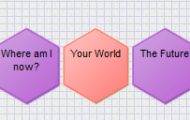“The unexamined life is not worth living.”
Socrates
We ask questions every second. Some questions and answers are subconscious others more a part of our problem-solving. For example, subconsciously we may not be aware of the way we assess putting one foot in front of the other as we walk. Consciously, we will certainly be aware of how we ask ourselves if walking faster would ensure that we catch the training on time.
There are many types of question but – for the purpose of this post – we will look at the two main forms that we use every day. They are:
- Closed questions – generally requiring a ‘Yes’ or ‘No’ answer. Though you might not believe that when politicians are asked closed questions. It is plainly beyond many of them to commit to such responses. They can be used to determine other data such as address, age or hair colour. But the response is often equally as monosyllabic.
- Open question – used to develop and requiring a more full and detailed response.
Other question types fall mostly into the final of these categories and we shall look at them in more detail in subsequent posts to this. For example, they include questions that:
- Probe for more detail
- Develop a previous comment
- Lead towards a certain conclusion or thought
- Do not need an answer
- There are others
Closed Questions
Some examples of closed questions are:
- Did you do that?
- Did you say that?
- Did you go there?
- Were you alone?
- How much did that item cost?
- Could you afford it?
- Are you happy?
All of the above require nothing more than a yes/no answer or a fact such as a price.
Open Questions
Using the above closed questions as a start point we can ask some open questions to develop the yes/no responses, for example:
- Did you do that? – Why did you do that? How did you do that?
- Did you say that? – Why did you say that? How did you think it would affect me?
- Did you go there? – Why did you go there? How did you get there?
- Were you alone? – Why did you go alone? How did you feel travelling alone?
- How much did that item cost? – How did you earn the money to buy that item?
- Could you afford it? – What effect has making that purchase had on your bank balance?
- Are you happy? – What does happiness mean to you?
These questions open-up the conversation and can be used to push people in a direction or bring them to a point where they come to their own conclusions.
In other successive posts to this one we are going to look in more detail at:
- Probing questions
- Developing questions
- Funnel questions
- Rhetorical questions
- Leading questions
- How to ask a question
When we plan or analyse by ourselves we ask questions of ourselves, others, the situation, the destination, etc. The list goes on!
Equally, when we work with a coach the questions can come from the coach as well as ourselves.
By questioning we test theory, conclusions and plans. If we raise enough questions we ‘see’ the possible outcomes and avoid the worst disasters!
Never pass a day without a question. Remember, as Eugene Ionesco said:






Leave a Reply